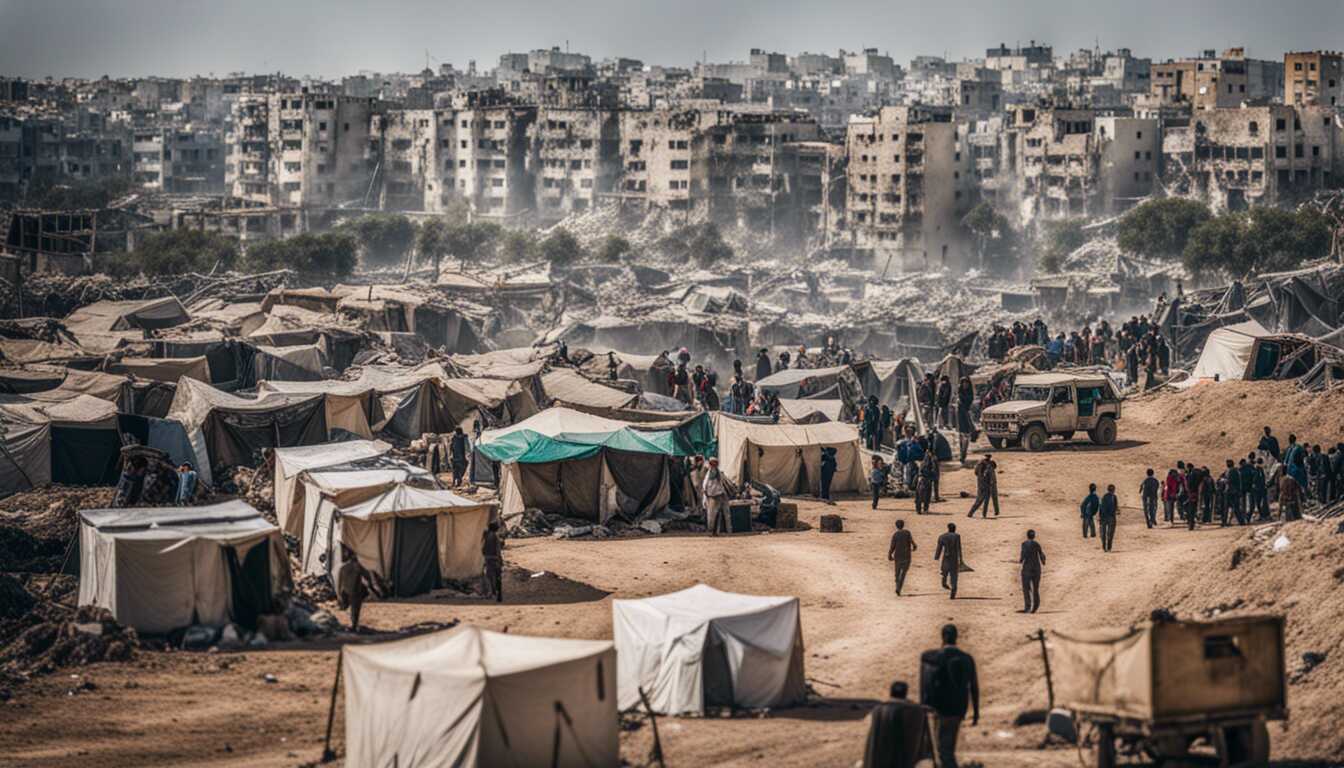
UN Court Orders Israel to Prevent Genocide in Gaza Strip, Stops Short of Demanding Ceasefire

The International Court of Justice, the top judicial body of the United Nations, has ruled that Israel must take all measures within its power to prevent acts of genocide against the Palestinian people in the Gaza Strip. However, the court stopped short of ordering a cease-fire in the region, amidst an ongoing military campaign by Israeli forces in Gaza. The court's decision, issued in response to a full case submitted by the South African government, calls for Israel to submit a report within one month on the steps it is taking, and it highlights the gravity of the situation while expressing major concerns about the welfare of Israeli hostages abducted by the Palestinian militant group Hamas.
The court's ruling
The court's ruling on Friday stated that Israel must fulfill its obligations under the genocide convention and prevent the commission of acts specified in the convention's article 2, which includes killing members of the group, causing serious bodily or mental harm, inflicting conditions of life aimed at physical destruction, and imposing measures to prevent births within the group. The judgment emphasized that Israel's military forces should not commit any of these acts and must prevent incitement of genocide against the Palestinian people. The court's decision came after it heard South Africa's allegations on January 11 and Israel's response on January 12. Despite Israel's request to dismiss the case, the court asserted its jurisdiction and maintained that its rulings are binding upon the concerned parties and allow no right of appeal. Israel's Prime Minister Benjamin Netanyahu reacted to the ruling by releasing a video address, vehemently denying the charge of genocide against his country and affirming their commitment to international law. He stressed that Israel's war is with Hamas terrorists, not against Palestinians, and vowed to continue the fight against Hamas while striving to keep civilians out of harm's way.
International Response and Humanitarian Concerns
South Africa welcomed the court's decision as a "decisive victory for the international rule of law and a significant milestone in the search for justice for the Palestinian people." The country also emphasized the need for the United Nations Security Council to be formally notified of the court's order and stated that individual states wielding veto power should not obstruct international justice, particularly in the face of the worsening situation in Gaza due to Israel's actions and omissions violating the Genocide Convention. The ruling raised questions internationally about the proportionality of Israel's military activity in Gaza and the extent to which it is minimizing civilian casualties. More than 20,000 people have reportedly been killed in the Gaza Strip, as per the Hamas-run Palestinian Ministry of Health. Humanitarian agencies have expressed concerns about the spread of diseases, overcrowded shelters, and a critical lack of food and electric resources in the region. Israel has denied the allegations and reiterated its right to self-defense, citing Hamas' use of civilians as human shields. The United States, a close ally of Israel, has also questioned the merits of the case, with National Security Council spokesperson John Kirby describing the South African lawsuit as "meritless, counterproductive, and completely without any basis in fact whatsoever" after it was filed. Despite the ICJ's ruling, the situation in the Gaza Strip remains complex and intensifies the need for diplomatic efforts to address the humanitarian crisis and the ongoing conflict between Israel and Hamas.
Share news















